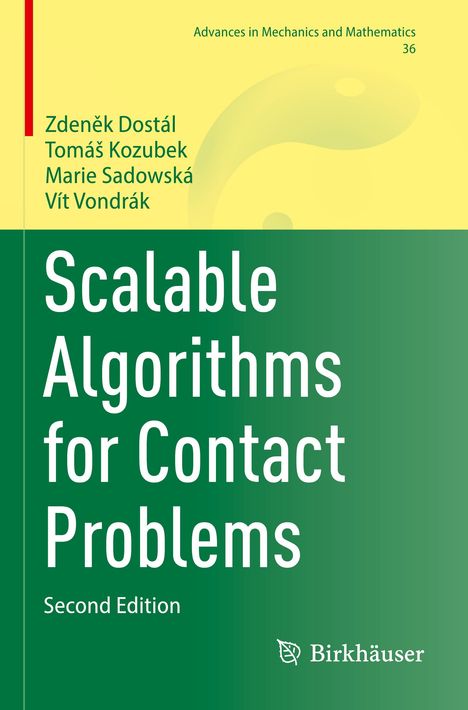Zden¿k Dostál: Scalable Algorithms for Contact Problems, Kartoniert / Broschiert
Scalable Algorithms for Contact Problems
(soweit verfügbar beim Lieferanten)
- Verlag:
- Springer, 10/2024
- Einband:
- Kartoniert / Broschiert, Paperback
- Sprache:
- Englisch
- ISBN-13:
- 9783031335822
- Artikelnummer:
- 12052324
- Umfang:
- 468 Seiten
- Nummer der Auflage:
- 24002
- Ausgabe:
- Second Edition 2023
- Gewicht:
- 703 g
- Maße:
- 235 x 155 mm
- Stärke:
- 26 mm
- Erscheinungstermin:
- 29.10.2024
- Hinweis
-
Achtung: Artikel ist nicht in deutscher Sprache!
Weitere Ausgaben von Scalable Algorithms for Contact Problems |
Preis |
|---|
Klappentext
Chapter. 1 Contact Problems and Their Solution.- Part. I. Basic Concepts.- Chapter. 2. Linear Algebra.- Chapter. 3. Optimization.- Chapter. 4. Analysis.- Part. II. Optimal QP and QCQP Algorithms.- Chapter. 5. Conjugate Gradients.- Chapter. 6. Gradient Projection for Separable Convex Sets.- Chapter. 7. MPGP for Separable QCQP.- Chapter. 8. MPRGP for Bound-Constrained QP.- Chapter. 9. Solvers for Separable and Equality QP/QCQP Problems.- Part. III. Scalable Algorithms for Contact Problems.- Chapter. 10. TFETI for Scalar Problems.- Chapter. 11. Frictionless Contact Problems.- Chapter. 12. Contact Problems with Friction.- Chapter. 13. Transient Contact Problems.- Chapter. 14. TBETI.- Chapter. 15. Hybrid TFETI and TBETI.- Chapter. 16. Mortars.- Chapter. 17. Preconditioning and Scaling.- Part. IV. Other Applications and Parallel Implementation.- Chapter. 18. Contact with Plasticity.- Chapter. 19. Contact Shape Optimization.- Chapter. 20. Massively Parallel Implementation.- Notation and List of Symbols.


